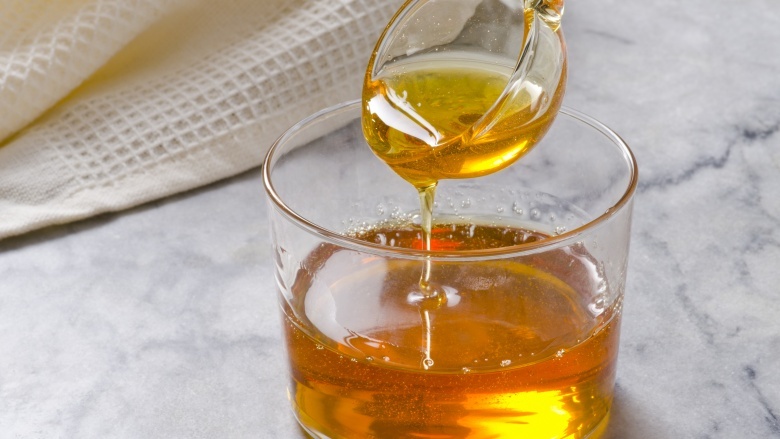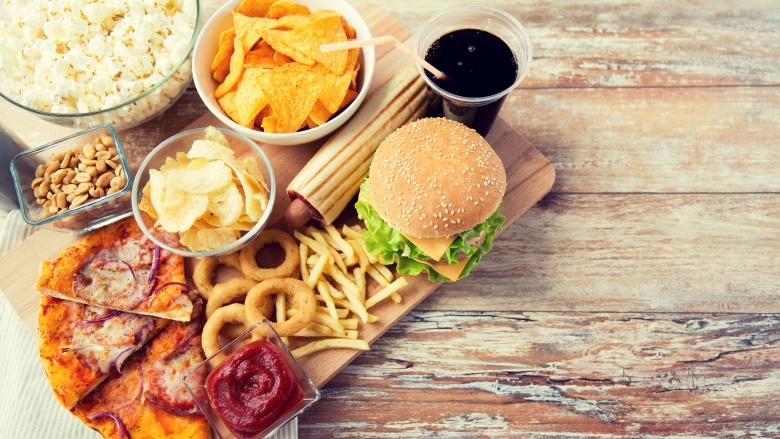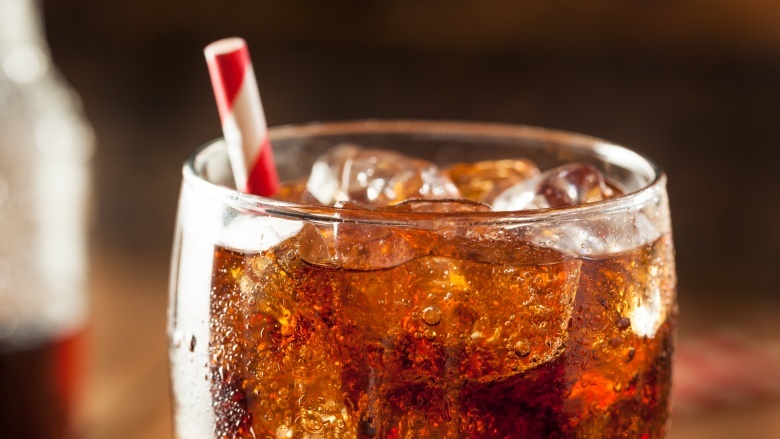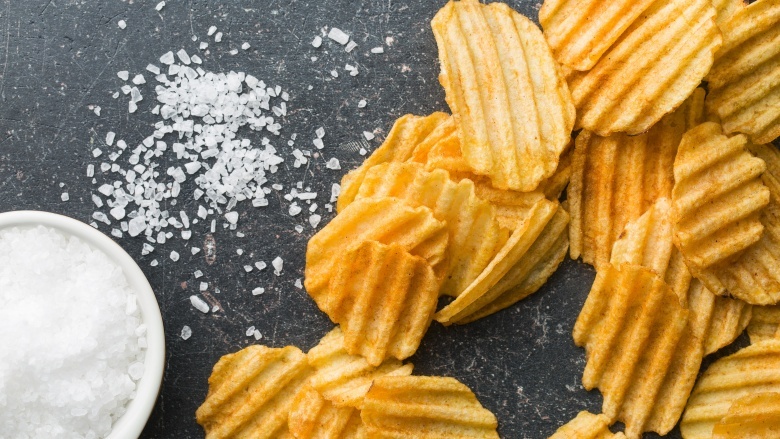Foods That Are Aging You
Getting older is inevitable. It just takes time, after all. But you shouldn't be in a rush to get there any sooner than necessary. The problem is there are a dizzying number of foods and drinks we consume every day that can accelerate the aging process. Some simply make you look older. Others actually physically age your body. Here's what to look out for so you can avoid both of those effects.
High-glycemic carbs
Despite sounding super science-y, high-glycemic carbs are really simple to understand: they spike your blood sugar quickly, and they contribute to faster aging. The primary reason these carbs are a culprit is because your body's process of breaking down sugar actually damages collagen, the protein that keeps your skin smooth and firm. High-glycemic carbs can be found in extremely sweet and sugary foods, so pretty much anything that could be considered a dessert or special treat. Put down the cupcake and just walk away!
Too much booze (even "skinny" cocktails)
Anecdotally, it's easy to look at a long-term, heavy drinker and see that it takes its toll. In small amounts, like a drink a day, alcohol can actually benefit your body. Any more than that, and you're just getting older faster. Dr. Oz says too much alcohol can cause "premature wrinkles, loss of collagen, elasticity, redness, dehydration, and puffiness." Alcohol also lowers the levels of Vitamin A in your body, which is an important antioxidant.
Agave
Agave is often used as a "natural" alternative for sugar in smoothies or sweetening oatmeal. Unfortunately, agave contains tons of fructose. In fact, it can often have more than high fructose corn syrup. In other words, it's loaded with sugar and, just like those high-glycemic carbs, damages the collagen in your skin that keeps you looking youthful. Not to mention, fructose is broken down as fat in the liver. Double trouble.
Pretty much anything at the drive-thru
Surprise! Fast food is bad for you. Now that the shock of that statement has subsided, let's explain how: trans fats. Trans fats aren't actually that common in natural food, but fast food is loaded with them because of how most items on the menu are fried in vegetable oil. Trans fats clog and stiffen the blood vessels and arteries, making your skin look older.
Processed meats
Bacon, sausage, pepperoni — pretty much anything you'd think of as "salty meat" — is processed. These meats pose two problems when it comes to aging you prematurely. First, they contain sulfites and other preservatives that cause inflammation in the skin. Second, they contain enormous amounts of salt. Both of these contribute to red, puffy, unhealthy looking skin, especially throughout your face.
Sugary soda
If you need another reason to go diet or just ditch soda overall, Time says it may age you as badly as smoking. It's not just looks, either. The researchers in the article found that a "daily 20-ounce serving was linked to 4.6 more years of aging." So a bottle of soda per day could cut five years off your life. You won't see that on any Coke ads.
Salty deliciousness
Not only can lots of sodium make your skin red and puffy, but it can actually physically age you like soda. Researchers found that excess salt literally accelerated the aging of cells, as well as increasing the likelihood of heart disease. And on the flip side, lowering salt intake had the opposite effect. Less salt is one of the major key factors to not only looking younger, but feeling younger, too.
That daily coffee
Coffee is the world's biggest vessel of caffeine, the true culprit in aging you. Caffeine in larger doses, like those found in a couple cups of coffee, acts as a diuretic. Basically, it causes your body to flush out water, causing dehydration. Dehydration is pretty bad for your skin, increasing wrinkles and spots. It's especially a problem for every day coffee drinkers. Unless you're getting enough water to compensate, you're probably walking around with a low level of dehydration every day. Like all problems, it only compounds over extended periods.








